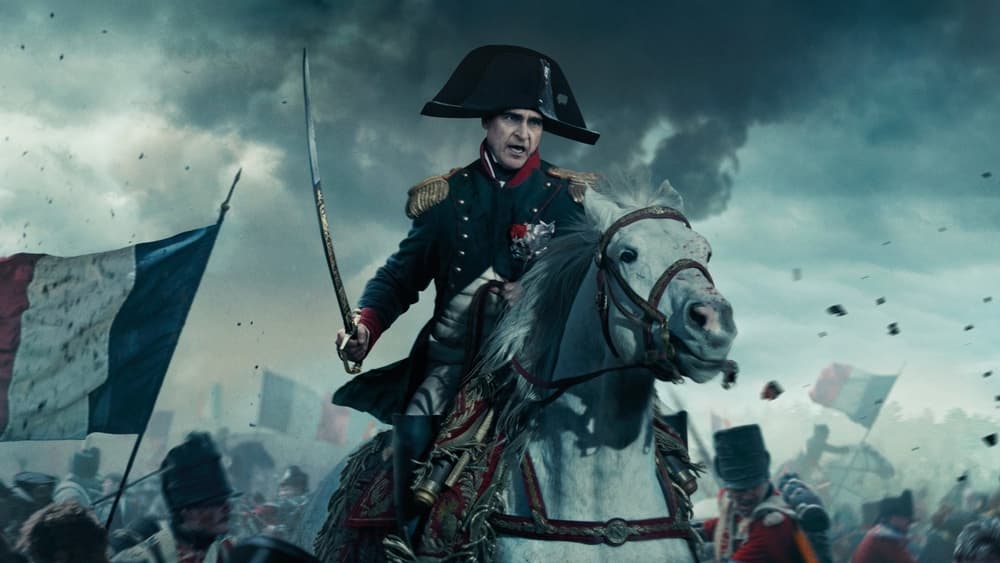“Were you there? No? Shut the fuck up then.” Ridley Scott has no time for bullshit on the press tour for his new epic “Napoleon.” In the leadup to its release this week, the new film about Napoleon Bonaparte has garnered a fair bit of criticism from historian circles over its depiction of events in the French Emperor’s life. But Scott and Apple don’t seem to care, dismissing these critics in interviews and prominently marketing some of the most egregious historical inaccuracies in the trailers. But who is in the right here? Does historical fact matter when telling stories of real people? Or should artists be free to put their spin on events for thematic and emotional purposes?
The answer to these questions depends on the role you think dramatic art plays in keeping a historical record. In the medium of film, the documentary form is typically dedicated to fact-keeping (supposedly) and narrative-building. Narrative features, even when based on reality, don’t have to abide by the same factual standards. Especially for well-known historical stories, plenty of books, documentaries, podcasts, and other works exist that provide more in-depth studies of their subjects than a two-hour feature film can handle. At the same time, with how accessible the film medium is, it’s entirely possible that many people who see a movie “based on a true story” won’t seek out other, truer angles on the story and go about their lives believing the semi-fictional tale as fact.
Even if a dramatic work piques someone’s curiosity about a historical figure or event, their level of understanding of an academic historical account may not be as great as a mainstream blockbuster. Art can be an easily digestible supplement, as it usually is when used in an academic context. But it cannot be the basis for understanding complex, nuanced subject matter. With all due respect to my 11th-grade AP US History teacher, I don’t think “1776” taught us much about the signing of the Declaration of Independence on its own.
But, at a certain point, artistic liberties must be taken with historical facts to create a more engaging and emotionally potent work of art. Does “Moneyball” work as well as a movie if the personnel changes and moves are gradual over a few years as in real life? Is “The Wolf of Wall Street” more fun if not told from the embellishing point of view of its cartoonish protagonist? Of course not. But the changes work because they fit with what the filmmakers are trying to do thematically while still feeling believable, at least in the distorted reality in which the film exists.
Where is the line, though? If certain stories have to be told factually and some don’t, does that not imply that some stories are more important than others? If you are making a film about a person, do you have a responsibility to them to tell their story truthfully? If not, you get films like “Blonde,” which can hide its utter contempt for Marilyn Monroe behind claims of being a work of fiction. On the other hand, you also run into the issue of films, particularly biopics, produced by their subjects (or those close to them) and take advantage of the factual gray areas of narrative filmmaking to shamelessly clean up their image, which is similarly ahistorical and even more cynical. Complexity is lost in these scenarios because the films don’t deal with the nuances of real human beings. They’ve descended into the simplistic fantasy of myth-making.
There is no winning this debate one way or the other. Every argument has a counter. Contradictions are guaranteed no matter what films you use as examples. Most people don’t care about historical accuracy because they don’t know what is accurate. Is that dangerous for a culture that has a history of skipping over facts of history that make them uncomfortable? Maybe. But I don’t think artists should change what they are trying to say because some people won’t understand that they aren’t watching a true story. Audiences must be more critical of the media they consume, and cultural critics can help them do that.

